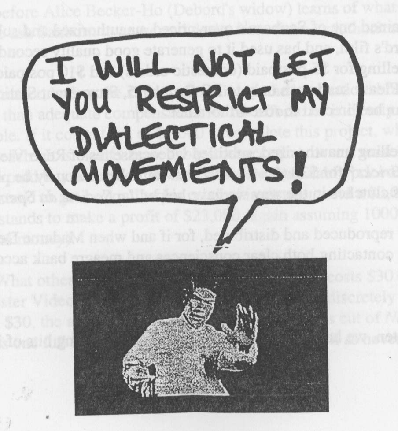Italy: Clark Kent screws up again

Does this news report seem familiar? It should do, if you're a Kiwi and a lefty like me. Italy's Refoundation Communist Party is being torn apart by the same issue that destroyed New Zealand's Alliance Party in 2001 - the war in Afghanistan.
Like the Alliance, the PRC is a coalition of social democrats and anti-capitalists led by a charismatic politician far to the right of his grassroots supporters. After entering a government dedicated to defending the interests of Italian capitalism and to strengthening of the European Union and NATO, the PRC has been faced with a choice between giving up the perks of power, on the one hand, and voting for the deployment of more Italian troops to Afghanistan and the expansion of a US military base in Italy, on the other. No prizes for guessing which option the party leadership has taken. After a massive protest against the base expansion last week, one PRC senator broke with party discipline and voted against the centre-left coalition government, prompting Prime Minister Prodi's resignation and all sorts of threats from the PRC leadership.
Along with the Respect Party in England and the Scottish Socialist Party, the PRC has sometimes been held up as an example of the 'parties of a new type' which supposedly offer a way forward for Kiwi socialists looking to (re)build a left alternative to Labour. Revolutionary socialists have played a key role in building Respect, the SSP, and the PRC, but most of them have avoided promoting revolutionary politics inside the new parties. Fearing that calls for the abolition of capitalism and arguments for the superiority of socialism would frighten away potential members, they have been focused almost exclusively on campaigning around 'bread and butter' issues like better wages and housing and more money for services like health and education. The 'parties of a new type' have focused on contesting elections, and given potential voters the impression that the route to change can come through parliament rather than through revolution on the streets and in the workplace.
The revolutionaries in 'parties of a new type' sometimes talk amongst themselves about a 'Clark Kent strategy'. While the party is gathering support, and the climate of public opinion is unsympathetic to socialism, these cunning folk will present themselves as nothing more than nice respectable social democrats. When the time is ripe, they will rip off this disguise and reveal themselves as revolutionary 'super-(wo)men' dedicated to the overthrow of capitalism.
Kiwi lefties with long memories will know that the New Labour Party founded here in 1989 was an example of a 'party of the new type'. Some of its most influential members were 'Clark Kent' Marxists. The Greens and - in the 1970s and '80s - the Labour Party have also attracted their share of Clark Kents. Like their counterparts in today's PRC, these undercover revolutionaries often decided to make their disguise permanent. One-time radicals like Matt Robson, Keith Locke, Sue Bradford, Marian Hobbs, and Metiria Turei have all become respectable MPs happy to serve the interests of New Zealand capital and US imperialism (Robson and Hobbs backed the invasion of Afghanistan; Locke and Turei are vocal defenders of the neo-colonial occupations that are killing East Timorese and Solomon Islanders and defending Australian and American investments).
Some critics of the 'parties of a new type' make the mistake of promoting an isolationist strategy for the anti-capitalist left as an alternative. They say that no pro-capitalist party should ever be supported in any way, and that even trade unions have to be viewed with suspicion, because of their close links with organisations like the Labour Party.
But there's a middle way between the extremes of selling out, on the one hand, and isolationism, on the other. Anti-capitalists have to accept that the vast majority of the people we want to win over have a belief in some sort of reformist, social democratic politics, which they see as, at the very least, a 'lesser evil' compared to the savage neo-liberal economics and craven pro-US foreign policies promoted by the parties of the right.
Workers in Italy voted a centre-left government into power because they hated and feared Berlusconi; workers in New Zealand have continued to vote Labour because they fear the damage the likes of Don Brash and Bill English could do. The Alliance would have been destroyed by its supporters if it had left National in power in 1999; the PRC would have disintegrated if it had refused to use its MPs to dispose of Berlusconi's government last year.
But there is no reason why either the Alliance or the PRC should have had to go into a government in which they were doomed to be an impotent minority. The Alliance could have pledged to support Labour on votes of confidence and supply, and thus get rid of the hated Nats, and yet refuse to enter Clark's Cabinet. Instead of trying to extract one or two favours in Beehive backrooms, the party could have campaigned on the streets and in worksites to try to pressure the government into adopting more progressive policies. The party might have lost some support in the short-term by refusing to join the Clark government in 1999, but it would have gained support in the long-term, as disillusionment with Clark kicked in amongst core Labour supporters.
Outside of government, the Alliance could have played a role in opposing the invasion of Afghanistan and the beginning of Bush's worldwide 'War of Terror', instead of becoming one of the casualties of this war. The Alliance could have become a vehicle for the massive movement against Labour's racist seabed and foreshore legislation in 2004, and it could have become a powerful advocate for a Kiwi trade union movement which is becoming stronger and more militant after the nadir of the 1990s.
What stopped the Alliance making the right choice and keeping its MPs' bums off Cabinet seats? By 1999, the argument against participation in a Labour government did not stand any chance of winning mass support in the Alliance. In the decade since the foundation of New Labour, the 'Clark Kents' in the party had done a very good job of avoiding debate on the pros and cons of support for capitalist governments, and on the possibilities and limitations of a strategy of reforming capitalism through parliament.
Groups and individuals who argued that tinkering with capitalism around a Cabinet table was no good, and that the overthrow of the whole system was necessary, were purged at the beginning of the nineties, and the tens of thousands of members who flocked to the Alliance in the middle of the decade were assured that a government with Jim Anderton in it could solve all their problems. The Clark Kents who acted as enforcers for Anderton liked to ridicule members who openly argued for socialism and revolution as 'loony leftists' whose policies could only lead the party to electoral disaster and a marginal place in New Zealand politics. It was the Clark Kents, though, who led the Alliance into government with Labour and oversaw its demise as a serious electoral force.
The lesson of the demise of the Alliance, and of the coming demise of the PRC, is that anti-capitalist organisations must make it a point of principle never to sit around the Cabinet tables of capitalist governments. Activists involved in attempts to resusitate the Alliance, or to build a new party around the Workers Charter newspaper, must make sure this lesson is remembered.
Footnote: if anybody wants to know why the US-NATO occupation of Afghanistan should be opposed by the left, they could do worse than check out this new post by Jeff Sparrow over at the leftwrites blog.

































